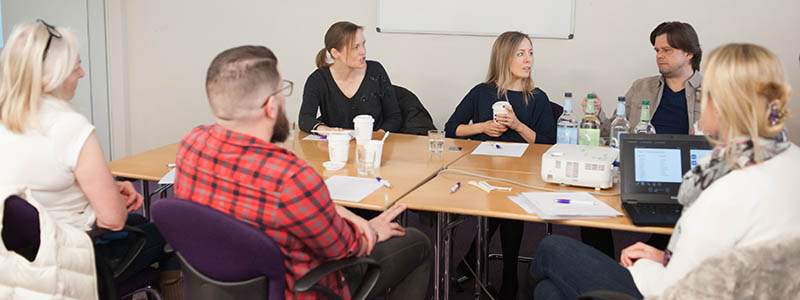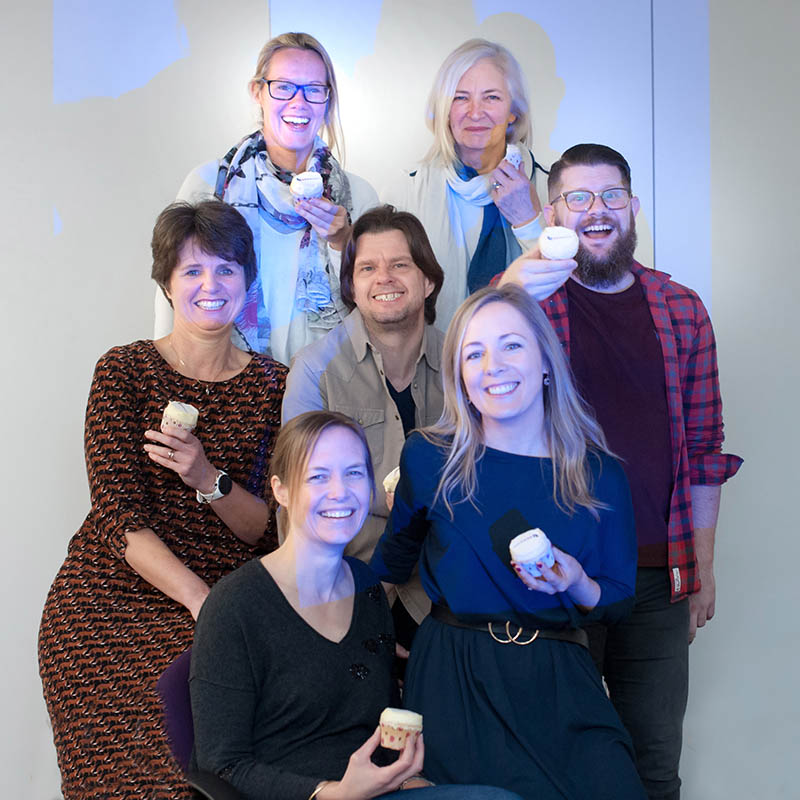Patient Public Involvement
“Helen aims to improve parent experience through supporting the process of decision-making & has put parents at the centre of her research” Parent
What is PPI?
PPI stands for Patient and Public Involvement. This involves members of the public, patients and carers in developing NHS research in a variety of ways. It helps to improve the quality of research by involving experts by experience who can provide unique insight in terms of both enhancing study designs and ensuring that research which is carried out is acceptable to those who are involved in the research study and meaningful to those who may benefit from the study outcomes. Visit INVOLVE for more information on patient public involvement: www.invo.org.uk
“As a parent myself, I see the value of this research and want to be sure it’s useful & relevant for future parents” Parent
REDMAPP PPI Group
The PPI group was developed following engagement calls at the Solving Kids’ Cancer Neuroblastoma Parent Education Conference in 2017 and on social media charity, facebook and twitter pages. The group will continue to meet twice a year throughout the study.
The group consists of 5 parents/carers (mothers, fathers and grandparents). For REDMAPP to be successful, it is essential the study has continuous input from those who have experienced making these difficult treatment-related decisions.

PPI in the REDMAPP study:
Recruitment
Influenced how Phase 1 was introduced to parents, with recruitment taking place after they had made a decision about their child’s treatment, to ensure parents did not have added pressure.
In light of COVID-19 and difficulties with recruitment through hospitals, a study amendment was made which enabled parents to self-refer to the study.
Identified where there was overlap in treatment decision-making between parents of children with relapse and refractory disease. In July 2021 a study amendment was made which enabled parents of children with refractory disease to participate.
Timing of interviews
Parent interviews in phase 1 took place within 2 weeks of a treatment decision being made. The PPI group felt this allowed time for family adjustment and maximised parent input across a range of different families. Additionally, they suggested conducting interviews following any treatment decision to ensure parents had made a treatment decision and that the details of that process were fresh in their memory (rather than having set time points for interviews as originally planned).
Practicalities and ethical considerations
To minimise parental burden and maximise recruitment, interviews in phase 1 were be planned around parents’ availability with the option of being face-to-face, telephone or video call. Interviews were paused or stopped if a parent became distressed and appropriate support provided. This was a healthcare professional based at their child’s treatment centre in Phase 1 and provision of information leaflets through charities and support networks to support in Phase 2.
Developing materials
Reviewed and edited participant information sheets, consent forms and interview guides for both study phases. For the interview guides it was important the questions asked were appropriately worded being sensitive to how parents may be feeling having just made a treatment decision with the right tone so they were a conversation guide about how a decision was reached.
Research design
Reviewed and had input into the design of the interview questions for phase 1 to ensure they were meaningful and appropriately phrased and worded.
Literature Review Consultation
The literature review which looked at parent treatment decision-making in poor-prognosis childhood cancer incorporated a PPI consultation phase. One parent was involved in reviewing and interpreting the findings from the literature review and is co-author of the publication from this work. The whole group reviewed the findings to provide their interpretation and how relatable this was to parents. The review findings were converted into an illustration to support understanding and engagement. This illustration can be found on the Study Outputs page.
Ongoing PPI involvement:
Intervention Development and Testing
Input on developing aspects of the intervention with the stakeholder group and study team. The group will be involved in testing the decision aid to assess its practicalities, how easy it is to use and understand ready for application in real life.
Dissemination
Parents have worked with an illustrator to visualise the literature review findings (see Study Outputs), providing these in an accessible format which is easy to understand. Future work will involve working with parents to identify ways of disseminating work in formats which are accessible to parents.
PPI Meeting Latest News
28.01.23 Virtual meeting via teams: Study update, continued to explore the findings from the parent interviews and discussed the stakeholder work for the intervention development phase due to commence in March 2023.
24.09.22 Virtual meeting via teams: Study update, explored the findings from the interviews with parents who have made one treatment decision. Discussed the amended phase 2 plans now that the study will develop an intervention and the plans for new study videos in light of the study changes.
23.04.22 Virtual meeting via zoom: Study update and changes to the study design informed by the findings from the literature review. Discussed that a decision aid is unlikely to adequately support parents in making these complex decisions. Looked at the framework for developing interventions which provides flexibility relevant to the findings from the parent interviews and future work with stakeholders.
27.11.21 Virtual meeting via zoom: Study update, discussed findings from the literature review with feedback and opinions from the group as to how relatable these are to parents. This informed the literature review consultation phase. Discussed the approach to analysing data from the parent interviews and volunteers from the group to support this process.
08.05.21 Virtual meeting via zoom: Study update, discussed the theory and literature on decision-making and how this relates to parents who are making treatment decisions, discussed plans for the literature review on ‘Parent values and preferences underpinning treatment decision-making in poor-prognosis childhood cancer’ and the groups involvement with this
19.09.20 Virtual meeting via zoom: Study update, discussed potential study amendments in light of COVID-19 to support recruitment, reviewed study social media outlets and identified ways to improve these
07.03.20 Premier Inn Meeting Room, London Victoria: Study update, reviewed REDMAPP research study website, discussed ideas to support recruitment for phase 1
22.06.19 Premier Inn Meeting Room, London Victoria: Co-designed interview questions, parent facing materials (participant information sheets, consent forms)
10.02.18 Malmaison Hotel, London: Discussed how parents make treatment decisions, what may help to support parents in doing this

